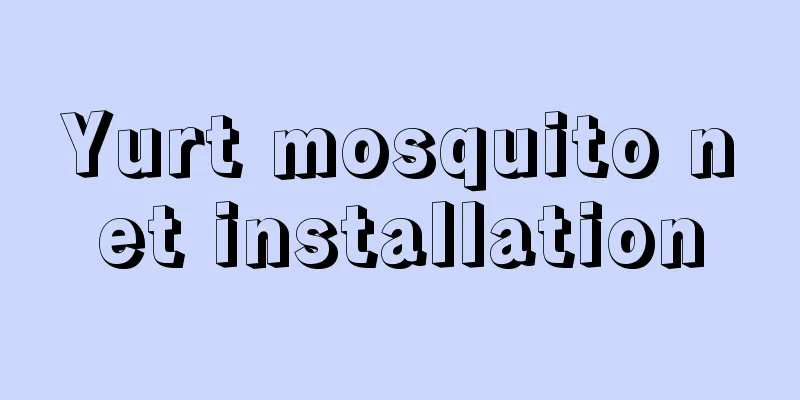The correct way to put your tongue against the palate

|
Although pressing the tongue against the upper palate is just a very simple little action, it is very beneficial to human health. It is a very common health care method currently. It can strengthen the kidneys to a certain extent. For those whose kidneys are not particularly good, they can persist in practicing pressing the tongue against the upper palate. Of course, it is necessary for people to understand the correct method first. What is the correct way to press the tongue against the roof of the mouth? Why do we need to make sure the tongue is properly touching the roof of the mouth? Generally speaking, when monks and nuns first start to meditate, they are very prone to drowsiness, lack of concentration, and are more easily disturbed by external factors. Someone once asked, “Is there any solution?” The general method of meditation now is to sit upright, so even if you are drowsy or fall asleep, your head will not move, because it is like a pile of copper coins, standing there loosely and loosely. Do not clench your teeth, and "press the tongue against the roof of your mouth." Many people close their eyes when practicing Taoism, but in fact, they should "open 3 times and close 7 times, until you can't distinguish what the visible things in front of you are, then you can concentrate and will not fall asleep easily." The most important point is to pay attention to "pressing the tongue against the roof of your mouth" before meditating~! Because there are two small pits on the human palate, called "Tianchi", the true qi of cultivation will leak out from here and needs to be held back with the tongue. There is another effect: Generally, when you meditate, once the tongue touches the roof of the mouth, the uvula will naturally open, the laryngeal cavity will expand, and breathing will be smoother, making it less likely to feel drowsy. If you keep the tongue on the roof of the mouth, you will not feel drowsy when meditating, because you have enough air and oxygen. When people feel drowsy, it means that the brain is lacking in blood oxygen. If there is insufficient oxygen, they will feel numb, and when they feel numb, they will feel dizzy, and their nervous system will lose control. I saw teacher Xiu Zhenzi say: The correct way to put the tongue against the upper palate is to make the sound "er" in your mouth, and that is where the tip of the tongue touches. That is, position 2 or 3 in the picture can produce the "er" sound. First of all, we can understand the basic structure of the human body. Between the nasal cavity and the oral cavity, that is, the upper palate is called the "Golden Bridge", also known as the "Upper Magpie Bridge", with two orifices (salivary glands). There are also two points under the root of the tongue (the left is Danjing, the right is Shiquan), and this is the Lianquan point (salivary glands). Behind the mouth is the pharynx, below the larynx is connected to the trachea, which is the place where air goes in and out for breathing; below the pharynx is connected to the esophagus, which is the passage for food to enter the stomach. If we slide our tongue along the upper palate to the last boneless pit on the upper palate and confirm that it is the Magpie Bridge (position 3), but this place is close to the throat, and if we press the tongue there, it will be very bent? Is your tongue feeling sore? Is this the location? But I also saw someone on the forum saying that it is a small idea to put the tongue on the upper palate. Pressing the tongue against the upper palate is called supporting the tongue, which was called "building a magpie bridge" in ancient times. It is one of the most basic contents of Qigong "body adjustment" and plays an important role in Qigong practice. The key to Qigong practice is to regulate the mind. The heart is the "monarch of the mind" and the "king of the five internal organs", and the tongue is the sprout of the heart. Therefore, pressing the tongue against the upper palate is not only beneficial to regulating the mind, but also has a certain regulating effect on the five internal organs. The Ren meridian acupoint starts at the perineum and ends at Chengjiang (located at the midpoint of the chin-labial groove); the Du meridian acupoint starts at Changqiang and ends at Yinjiao (located at the junction of the upper lip frenulum and the gums). Pressing the tongue against the upper palate can connect to the Yinjiao of the Du meridian and the Chengjiang of the Ren meridian, which plays an extremely important role in connecting the circulation of qi and blood in the Ren and Du meridians and forming the "circulation of qi and blood". Therefore, the ancients figuratively called pressing the tongue against the upper palate "building a magpie bridge". So how do you press your tongue against the roof of your mouth? According to authentic teaching, you do not need to intentionally roll up your tongue and press it against the upper palate, otherwise "a slight mistake will lead to a great error." The correct way to do it is: close your lips lightly and clench your teeth, the tip of your tongue will naturally rest between the upper palate and the upper gum (actually the inner side of the gingival cavity), and you must never lift your tongue and press it hard against the upper palate. Position 1. Or when you make the sound "er" in your mouth, you can also press your tongue against position 2 in the picture (that is, the magpie bridge in the middle of the wrinkles between 1 and 3). This way the tongue will be more comfortable. Is this the correct position? Answer Regarding how to press the tongue against the roof of the mouth, I have consulted many books and materials. There is a book called "Babao Hard Qigong" which talks about how to "press the tongue against the roof of the mouth". The specific content is as follows: The tongue should be straight and not curled; it should be light and not heavy; and it should be close to the roots of the upper teeth. However, a Taoist classic describes that the tip of the tongue should be placed between the hard palate and the soft palate. It is said that the upper palate is the Tianchi point because it is connected to the brain marrow. In order to prevent the air from leaking downwards, the tongue is pressed against the Tianchi point to guide the true qi from the Xuanying point down to the Dantian, producing nectar that flows down the trachea and passes through the twelve floors. To close the mouth, hide the tongue, and press the tongue against the roof of the mouth, in the past one had to curl the tip of the tongue back to 90 degrees and press the bottom of the tongue against the roof of the mouth. Because there are two small pits on the upper palate of a person, they are called "Tianchi Points". Therefore, the upper palate is the location of the Tianchi point, which is located in the depression about an inch inside the upper gum, and is the place where the tip of the tongue touches when you pronounce the word "er". The purpose of closing Tianchi is to open Xuanying (Xuanying acupoint is behind Qiaoshe). Once Xuanying is opened, the flow of true breath is unobstructed. Furthermore, closing the heaven and earth will easily lead to the production of saliva. There are two points for promoting saliva production under the root of the tongue. On the left is the Golden Well and on the right is the Stone Spring. When you sit in meditation, your mouth often becomes full of saliva, which feels clear and sweet. At this time, the swallowing method should be applied to swallow the saliva into the abdomen. That is, keep the tongue on the upper palate without moving, suck the saliva to the root of the tongue, and when it is about to spit out, tilt your head back to swallow it with a "gurgling" sound. It is said that swallowing the essence in this way can directly enter the Ren meridian and be transformed into Yin essence. It is a shortcut to producing essence and a wonderful way to keep fit. Pressing the tongue against the roof of the mouth is basic common sense in Qigong, but no one has delved into its principle. There are two small pits on the upper palate of a person that can be felt by putting your fingers in. Taoists call them "Tianchi". These are not acupuncture points, but rather the key to spiritual practice. There are two small holes on both sides of the hard bone in front of position 3. After touching the hard bone with your tongue, lick down both sides. There are two holes, which are still cartilage (or boneless depressions), so you can confirm that this position is correct. Generally speaking, most exercises in various schools require the tongue to "press" the upper palate, while some say that the tip of the tongue should lightly press against the upper gums. The purpose of this practice is to connect the Ren and Du meridians and produce body fluids at the same time. From my empirical experience, if the tip of the tongue lightly touches the upper palate or the upper gum, the effect of producing saliva in the mouth is not obvious. Looking up relevant historical materials, it says: "The tongue supports the palate" and emphasizes "gradually blocking the throat", which means that in the process of the tongue contacting the palate, it should support the palate like a pillar, and the tip of the tongue should gradually move to the end of the soft palate, close to the throat, and finally stay there. When practicing this method, although the tongue may feel a little unnatural at first, one will soon adapt and saliva will be produced more obviously. At the same time, I also heard from friends who have opened up the Ren and Du meridians that they just need to relax their tongue naturally. Once they have developed the Ren and Du meridians and have opened up their qi, there will be a force that will pull their tongue up. So I think you can also push to position 1 at the beginning. Although the body fluids will not come as much as in the correct position, you will naturally push to the correct position when the Ren and Du meridians are opened. I have had nothing to do these days, so I put my tongue against the roof of my mouth and my mouth is filled with thick saliva that tastes clear and sweet. You can give it a try. Reposted from the Path of Cultivation Forum? [Opinions from Hundreds of Schools of Thought] Liu Fengzhang, the Xuanguanzi of Leshantang, asked: "Close the door and hide the tongue, and press the tongue against the upper palate. All the doors have this method. You can also raise the air and push the tip of the tongue; when the air drops, the tongue is put down. This tongue is called the 'key'. Is this true?" Elder Qianfeng said: "This is the way of humanity, which enables people to first understand how to be a good person, accumulate merits and deeds, and seek the true way. It has nothing to do with human nature, life and death. He regards his tongue as a lotus platform and his breath as auspicious clouds. When the tongue touches the upper palate and the air rises, it is said that the primordial spirit comes out from the top of the head, which is like the Buddha sitting on the lotus platform and riding the clouds to the sky, which is called Li. The Qi descends again and the tip of the tongue is put down, which means the soul returns to the world, which is Kan. The Qi rises to the top of the tongue, which is called the Yuanshen filling Li and forming Qian, and Kan then becomes Kun. This is the meaning of their fate of filling Li with Kan. The true way of pressing the tongue against the roof of the mouth is to do this, but this is not the explanation. For example, taking Kan to fill Li is another name for returning essence to nourish the brain. As people grow older and gain more knowledge, their seven emotions and six desires tend to shorten their lives. Even though they know that these are the sources of harm to their lives, they are still unwilling to restrain themselves. When you look back to the time when he is hunched over, with short eyes and a haggard appearance, you will realize that his brain power is depleted, his memory is declining, his train of thought is not wide, and his roots have no way to grow. If one's spirit is weak, it will be difficult to fulfill one's duties. Therefore, those who practice Taoism must first preserve their essence and strengthen their kidneys, which is actually to retain the yang and lock their life. My teacher Liaokong once said: "The upper palate is the Tianchi point. Because it connects to the brain marrow, in order to prevent the qi from leaking downwards, you should press the Tianchi point with your tongue to guide the true qi from the Xuanying point down to the Dantian, producing nectar, which flows down to the trachea and passes through the twelve floors. 'Therefore, the tip of the tongue is pressed against the upper palate, and the true energy gathers in front of the ancestral orifice. Always observe this orifice with your eyes, always listen to this orifice with your ears, always press your tongue against this orifice, use your thinking, and keep this orifice in your mind. Whether walking, standing, sitting or lying down, your mind should always be on this orifice. Do not forget this orifice even for a moment. Suddenly, my heart is clear and refreshed, my body is strong and my spirit is flowing. I feel quiet and free of thoughts and worries, and I suddenly realize that it is empty and not empty. Clear understanding. When one reaches this point in true Kung Fu, one’s spirit will naturally become bright, wisdom will grow, and the mind will become more intelligent. Suddenly, a point of true yang emanates from it, and this is the appearance of the mysterious gate. Therefore, my teacher, the Taoist master of the Namo school, said: "The Xuanguan has no fixed location, the entire Huangting is the Xuanguan. 'If you don't press your tongue against the Tianchi point, the Huangting's innate true energy will be leaked. If you don't know the location of the upper palate, you can visit a dental clinic and the deep depression 10 on the plaster upper tooth model is there. If you don't hold up the upper palate, the true qi cannot descend to the dantian. This is the true method of breathing. ” Liu Ge Zhongfang, a disciple of Leshantang, asked: "When I was meditating, my hands and feet moved in a trance, and my body seemed to fall forward, as if I was startled. Master, please tell me what is wrong with me?" The old man Qianfeng replied, "This is because your mind is not centered and your tongue is not touching the upper palate, which is why this strange phenomenon occurs. Quickly bring your mind back to the center and this handle will disappear immediately. All the scenes you see are illusions. Just bring your mind back to the center and the bad scenes will disappear." |
<<: Why is there so little urine?
>>: What should I do if there is a lump next to the cylinder door
Recommend
Is it good to eat too much hawthorn?
Hawthorn tastes sour and sweet, and has the effec...
The disadvantages of running in the morning on an empty stomach
Morning jogging is a popular and relatively healt...
Side effects of muscle-building protein powder
I believe that many people who like fitness have ...
Prostate cancer patients should be aware of the examination methods in a timely manner
Prostate cancer is a common cancer disease, which...
Does bone cement have any side effects? What is the significance of bone cement to the human body?
Bone cement is used to repair trauma and fill dis...
Five methods of TCM for treating nasopharyngeal carcinoma
In traditional Chinese medicine, nasopharyngeal c...
How to know the characteristics of vascular headache
How do we know that vascular headache is a relati...
The dangers of hamartoma that you don't know
Who is willing to go to the hospital in life? I b...
What causes watermelon stomach
Watermelon is a delicacy that can relieve heat an...
Do you know that the early symptoms of cervical cancer are obvious?
There are no symptoms in the early stages of cerv...
It is important to prevent pancreatic cancer
Pancreatic cancer is one of the common digestive ...
What are the ways to prevent lung cancer? Several ways to prevent lung cancer in life
Lung cancer is a malignant tumor disease. With th...
The function of the eye mask
An eye mask is an item that is familiar to everyo...
What to do if you feel sore all over after running
Many people like to achieve their fitness goals b...
Will prostatitis turn into prostate cancer?
Can prostatitis turn into prostate cancer? 1. Due...









